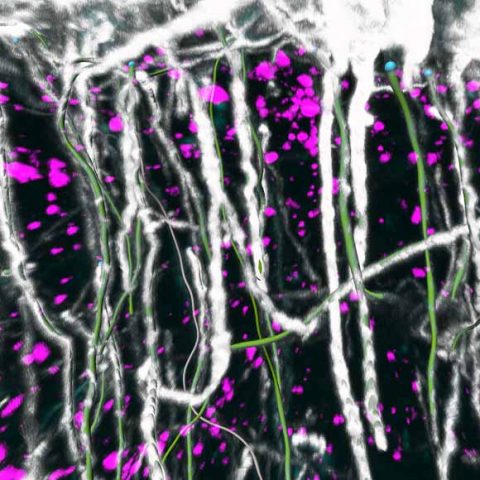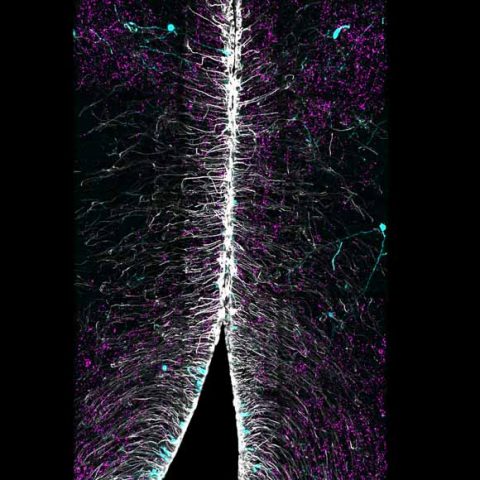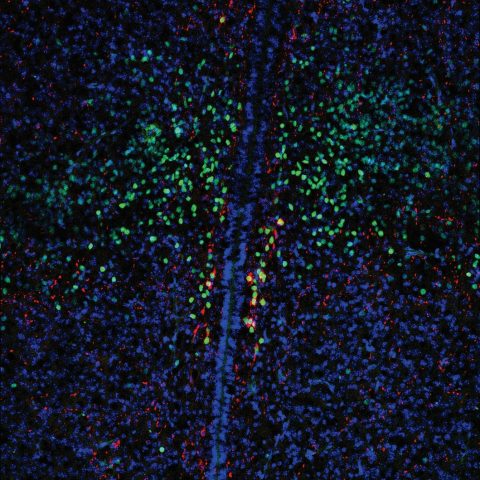Laboratory for Molecular Neurosciences
Tibor Harkany

Laboratory for Molecular Neurosciences
Tibor Harkany

Laboratory for Molecular Neurosciences
Tibor Harkany

The Harkany laboratory at the Medical University of Vienna pursues experimental research, firstly, on fundamental mechanisms that drive the molecular design of the mammalian brain during fetal and postnatal development, including studies on cellular diversity and intercellular signaling systems. Secondly, we strive to understand how maternal life-choices during pregnancy (in particular drug seeking, preference to diet, metabolic compromises and stress) modify fetal development, potentially impacting affected offspring for a life-time. We address these key questions through the cumulative power of molecular, cellular and circuit neuroscience in invertebrate and vertebrate model systems, such as Drosophila and laboratory rodents, as well as in human subjects. The breadth of our methodological repertoire (including single-cell transcriptome and epigenome analysis, multicolour lineage tracing, mouse genetics, neuropharmacology and the multidimensional neuroanatomy of intact tissues) has helped us resolve, during the past 20 years, some of the challenging and exciting questions of modern Neuroscience.
Roman A Romanov, Evgenii O Tretiakov, Maria Eleni Kastriti, Maja Zupancic, Martin Häring, Solomiia Korchynska, Konstantin Popadin, Marco Benevento, Patrick Rebernik, Francois Lallemend, Katsuhiko Nishimori, Frédéric Clotman, William D Andrews, John G Parnavelas, Matthias Farlik, Christoph Bock, Igor Adameyko, Tomas Hökfelt, Erik Keimpema, Tibor Harkany